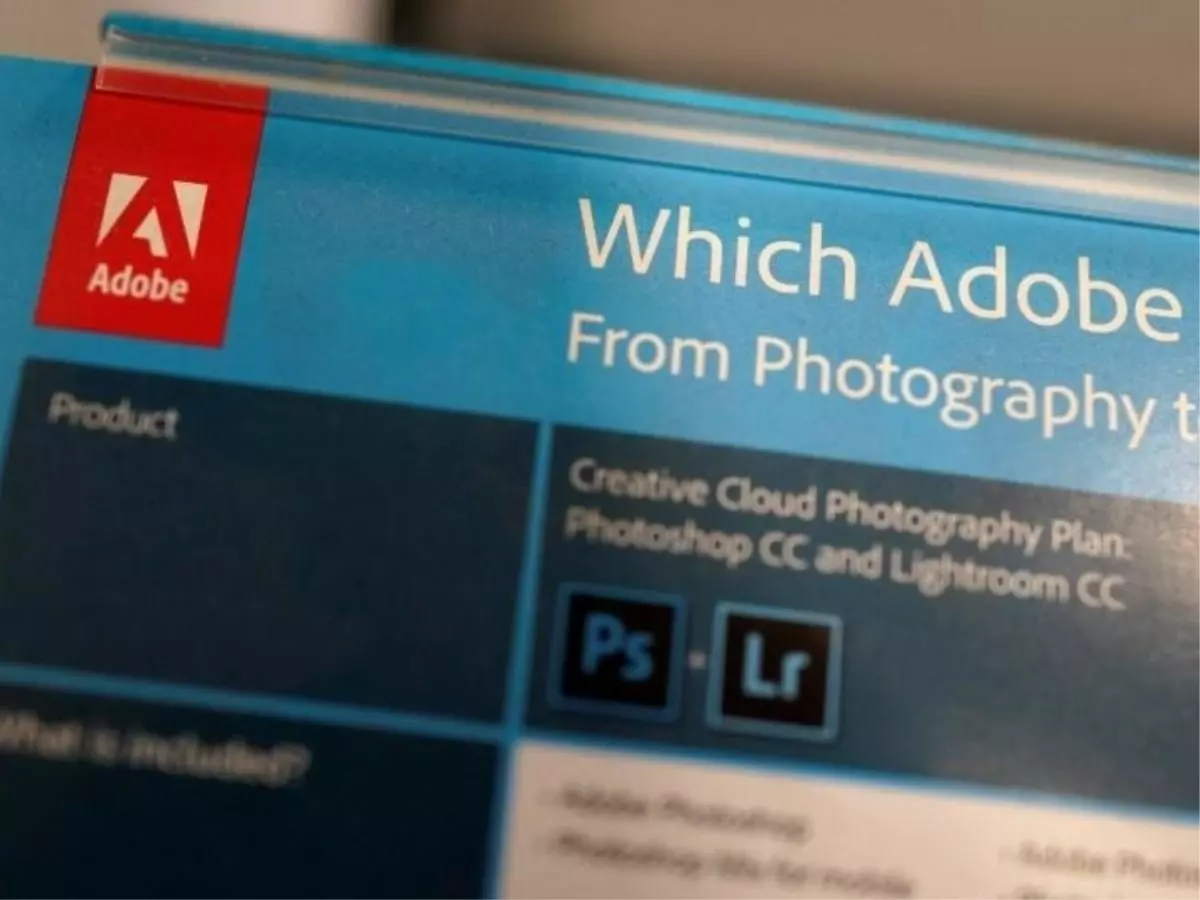Adobe Warns Customers Can Be Sued For Using Older Photoshop, And Why This Is A Worrisome Trend
Last week, Adobe began sending letters to the owners of older versions of some of its Creative Cloud apps; Photoshop, Lightroom, Premiere, and the like. Their letter said these people wouldn¡¯t be able to use the apps they paid for, for no reason.

Last week, Adobe began sending letters to the owners of older versions of some of its Creative Cloud apps; Photoshop, Lightroom, Premiere, and the like. Their letter said these people wouldn't be able to use the apps they paid for, for no reason, and would have to upgrade.
Obviously, this didn't go down well with customers. Adobe warned users, saying using the older software could put them "at risk of potential claims of infringement by third parties."

Reuters
Adobe failed to specify why these customers wouldn't be able to use the older software. Instead, they explained they would only have access to the two most recent versions of its software. A blog post on the matter additionally simply gave vague promises of "optimal performance and benefits" from the newer versions.
I just got an email from @Adobe that I'm no longer allowed to use the software that I'm paying for. Time to cancel my subscription I guess.
¡ª Matt Roszak ? (@KupoGames) May 10, 2019
Share plz. pic.twitter.com/ZIIdqK5AkM
It's an alarming move to tell people that the software they paid for is now unavailable to them. The thing is, not only is this pretty common in the world of tech today, there's also usually not much legal recourse for customers.
You buy a license, but don't own the software
When we buy a new software or purchase a subscription, we're served with an end user license agreements (EULAs). These agreements contain language that allow the creators to, at will, add or remove features they as they see fit. This isn't a contract, so you don't really have an option to negotiate either. If you want the product they're offering, you're forced to take it or leave it as it is.

In this case, it's highly likely the Adobe hasn't violated the terms it set out in its EULA. So when they're forcing you to upgrade to a newer, more expensive version, it's all legal. Think of something like Netflix for instance. Say you have a particular show you like to go back and watch over and over. Tomorrow, if the company loses the licence for that show, or the company that offered it takes it back, that show is gone from Netflix. You can't possibly demand a refund however, because the content being made available is Netflix's prerogative; you're just renting access to whatever IS available.
Time to bring this back pic.twitter.com/eVMp3azZ26
¡ª ?Mari? (@biggaybutchbabe) May 11, 2019
In this case, there is a possibility that the motivation behind Adobe's move isn't simply to force you to upgrade, but rather ongoing litigation. The company is currently being sued by Dolby for copyright infringement.
put together this neat little infographic about alternatives to adobe's exploitative subscription program! no need to thank me (: pic.twitter.com/wlFhK9A6zB
¡ª ?im roxie?? (@lifeistatakai) May 14, 2019
As reports indicate, the two companies signed a deal with Adobe licensing some technology from Dolby for its applications. Before Creative Cloud, Dolby would get royalties based on the number of software disks sold by Adobe.
After the company switched to a cloud service however, Dolby alleges they began using a loophole to pay them less. Essentially, users pay for a subscription to Creative Cloud, which gives them access to various programs that use Dolby's tech. However, because it's a one-time payment, Dolby only gets paid once instead of for each app. Additionally, they say Adobe's Master Collection is marketed as a single product, but actually contains "four products that each have a separate and independent copy of Dolby Technology". So though they should be getting a separate royalty for each of these, Adobe is giving them one.

Ideally, this shouldn't have any effect on Creative Cloud subscribers. After all, they weren't told they were being sold access to programs Adobe didn't have full control over. So even though the corporate seemingly tried to dodge royalty fees and save money, they're threatening to penalize creative professionals that have been faithfully paying subscription fees.
This is all especially important when you realise there are specific reasons someone might prefer an older version of these softwares, so upgrading isn't an easy option. Maybe they're running on an older computer with lower specs, or they don't like how certain features were changed. Either way, it sucks to be told you don't own software you've effectively paid for.
